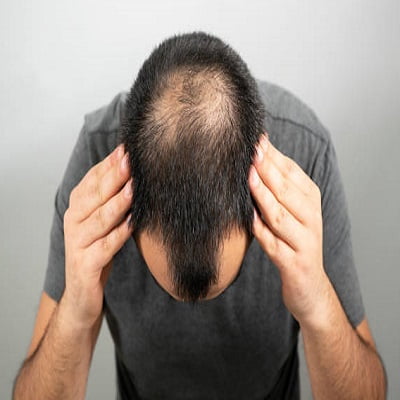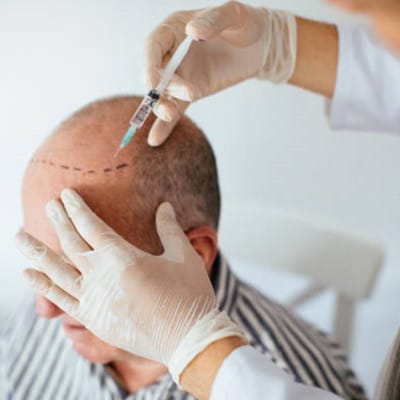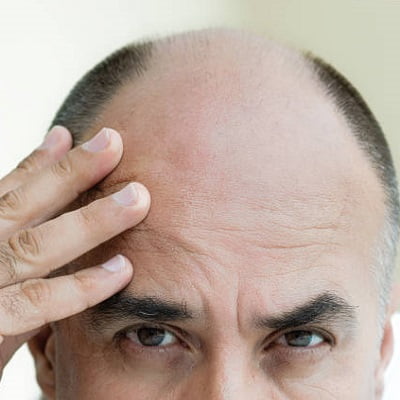
People of all ages are affected by hair loss, a widespread concern. Many people are considering hair transplants in Islamabad because they want to recover a full head of hair, whether because of genetics, hormonal changes, or lifestyle choices.
However, the approach to hair transplants should be tailored to the specific needs and considerations of different age groups. This comprehensive blog will explore the unique concerns of hair transplants across various age brackets.
Understanding Age-Related Hair Loss:
Before delving into the specific considerations for each age group, it’s crucial to understand the different causes of hair loss at various stages of life. For example, young adults may experience hair loss due to genetic factors, while older individuals may face hormonal imbalances or medical conditions contributing to hair thinning. Knowing the root cause helps in customising the treatment plan.
Hair Transplants for Young Adults (20s-30s)
Young adults often experience hair loss due to genetic factors, commonly known as male-pattern baldness or female-pattern baldness. Special considerations for this age group include:
- Stabilising Hair Loss: Before considering a hair transplant, it’s essential to ensure that the individual’s hair loss has stabilised. Performing a transplant too early may lead to the need for additional procedures as hair loss progresses.
- Long-Term Planning: Young adults should have realistic expectations about the long-term effects of a hair transplant. The surgeon may discuss the possibility of future hair loss and plan accordingly.
- Conservative Hairline Design: Creating a natural-looking hairline is crucial for young adults. A conservative approach to hairline design ensures a result that will age gracefully over time.
Hair Transplants for Middle-Aged Individuals (40s-50s)
As individuals enter their 40s and 50s, hormonal changes and ageing can contribute to hair thinning. Special considerations for this age group include:
- Combining Procedures: Middle-aged individuals may opt for a combination of procedures, such as hair transplants and other non-surgical treatments, to achieve optimal results.
- Assessing Overall Health: It’s essential to determine the individual’s overall health and address any underlying medical conditions that may contribute to hair loss.
- Managing Expectations: Realistic expectations are crucial for this age group. While a hair transplant can provide significant improvement, it may not fully replicate the density of youthful hair.
Hair Transplants for Seniors (60s and beyond)
Seniors may face unique challenges when considering hair transplants, and special considerations include:
- Health Assessment: Before a hair transplant, seniors should undergo a thorough health assessment to ensure they can tolerate the procedure.
- Realistic Goals: Seniors should have realistic goals, understanding that the density achieved may be more modest than younger individuals.
- Consideration of Medications: Some medications commonly taken by seniors may interfere with the success of a hair transplant. It’s crucial to discuss any medications with the surgeon.
General Considerations Across Age Groups:
Regardless of age, specific considerations apply to all individuals seeking hair transplants:
- Choosing a Qualified Surgeon: Selecting a board-certified and experienced surgeon is paramount. A skilled surgeon will consider individual needs and create a customised plan.
- Post-Transplant Care: Following the transplant, proper care is essential for optimal results. It includes avoiding strenuous activities, following medication protocols, and attending follow-up appointments.
- Emotional Well-being: Hair loss can significantly impact one’s self-esteem. Addressing the emotional aspects of hair loss and discussing expectations and concerns openly with the surgeon is essential.
The Bottom Line!
Hair transplants offer a viable solution for individuals across different age groups experiencing hair loss. However, the success of these procedures relies on a comprehensive understanding of the unique considerations at each life stage.
By considering factors such as hair loss stability, overall health, and realistic expectations, individuals can make informed decisions about the most suitable approach to restore their hair and confidence. Consulting with a qualified surgeon at SKN Cosmetic Clinic Islamabad and maintaining open communication throughout the process ensures the best possible outcome, regardless of age.



